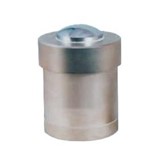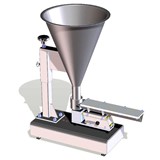Lincoln's Plant & Food Research scientists have been on a six-year mission to discover what foods make us feel satisfied and how best to eat them. It turns out the age-old advice to properly chew your food is not always best for your health.
Team leader food structure engineering Marco Morgenstern said taking bigger bites and chewing less was better for people watching their weight as the food was broken down more slowly in the stomach. This meant people felt fuller for longer and the slow release of energy could be burned off over time. However, sportspeople wanted the quick energy hit you got from partially digesting food in the mouth, so would be better off eating softer foods and chewing for longer.
"The way people chew the food depends more on the food's properties, not the individual, so you can design food which people won't chew much and [food they] will chew a lot," Morgenstern said.
Baking technology scientist Arran Wilson spends his days making different sizes and structures of muesli bars to test the research in the real world. Changing the way muesli bars were eaten could be done by using indentations like those in chocolate bars and by changing the size and texture, he said. Bars could be made to help people with diseases such as diabetes who needed slow-release food to keep their glucose levels stable.
Business manager Dr Tim Lindley said the research team had tested 3000 foods for their effect on blood glucose levels, which reflected how quickly they released energy into the body.
Their findings included the benefits of eating whole-oat muesli and wholegrain bread which made people feel satisfied for longer. Pasta was also found to have a slow-release energy.
Lindley said fad diets which encouraged people to stop eating carbohydrates were unhealthy. About half of a person's food energy intake should be carbohydrates, the key was knowing which ones to eat and when, he said.
"If you are spending most of the evening on the couch watching television then you need to eat accordingly," he said.
"You want something satisfying so you don't feel inclined to nibble more and add far more energy than you are going to use up."
The research team has created an online diet programme called Aspire for Life which has been clinically tested at Otago University.
Plant & Food Research was awarded $3 million in annual funding for the six-year project which is in its final year.













